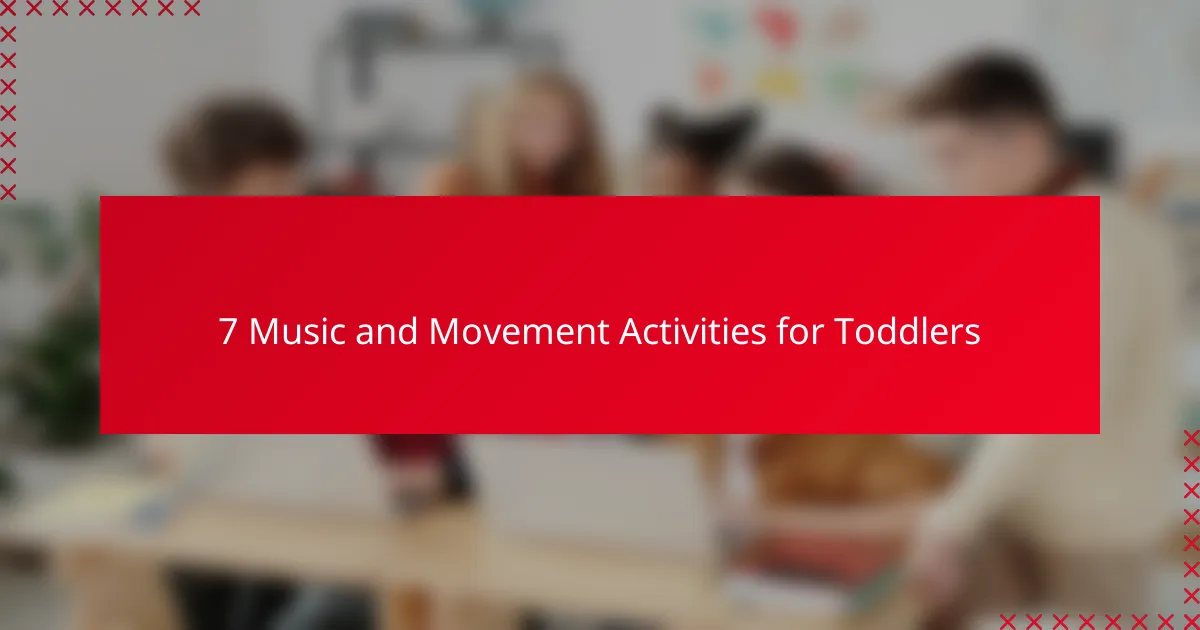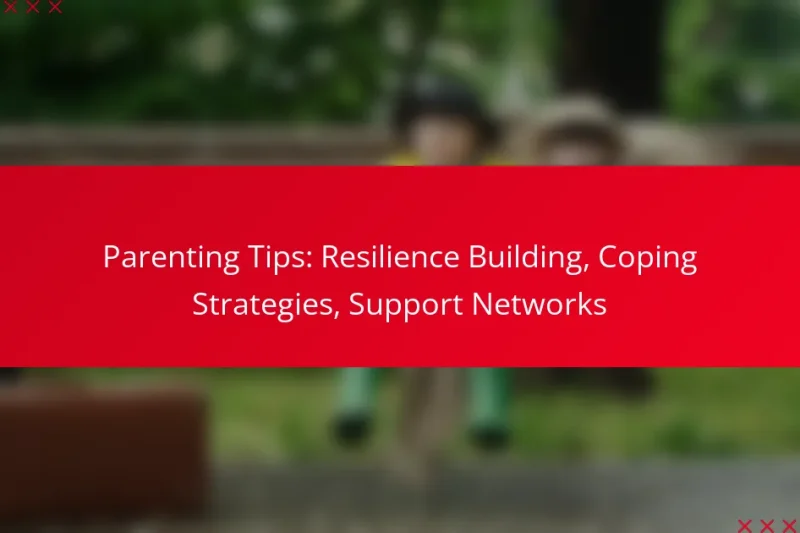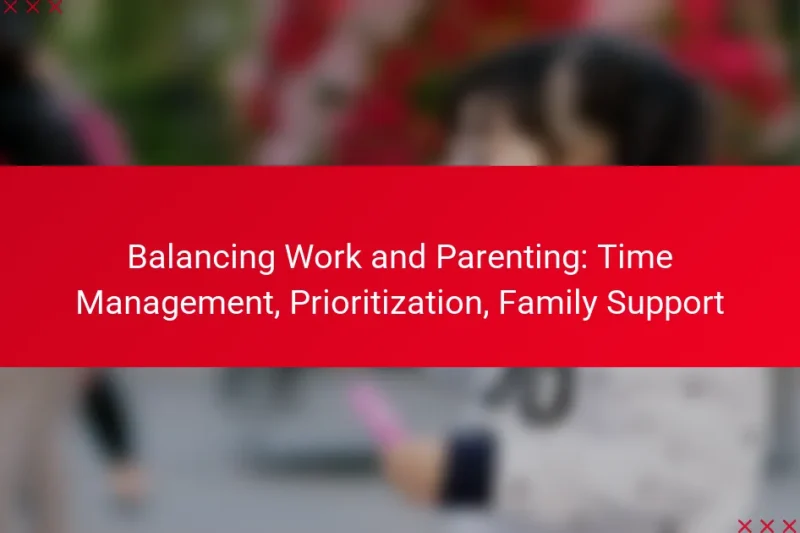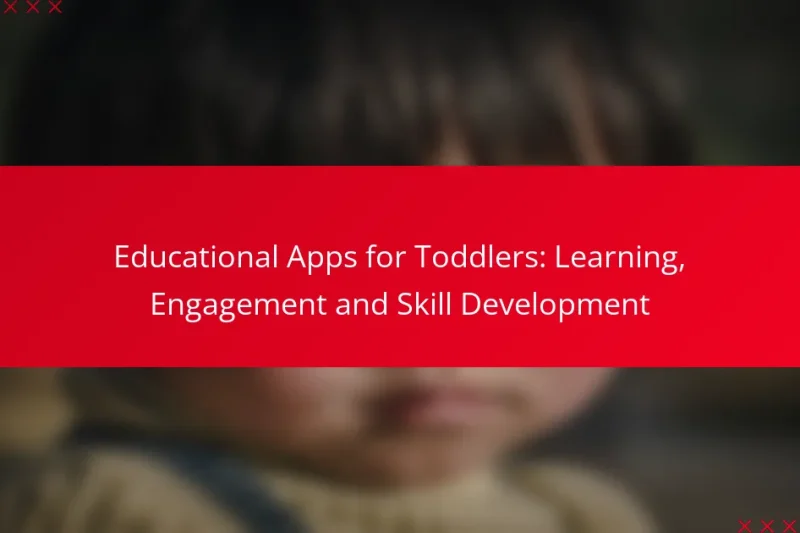Music and movement activities for toddlers are a delightful way to foster physical coordination and social … 7 Music and Movement Activities for ToddlersRead more
Parenting young children involves nurturing their development through positive interactions and structured environments, which are essential for fostering emotional well-being and independence. Engaging in educational activities at home can enhance their learning experience, promoting critical thinking and creativity. By creating a supportive atmosphere, parents can help their children understand and express their emotions effectively.
Early Childhood Development: Milestones, Skills, Growth, Learning
Early childhood development is marked by key milestones that encompass physical, cognitive, social-emotional, language, and adaptive … Early Childhood Development: Milestones, Skills, Growth, LearningRead more
Toddler Development: Signs, Health, Growth, Well-Being
Toddler development is a vital phase characterized by the growth of physical, cognitive, social, emotional, and … Toddler Development: Signs, Health, Growth, Well-BeingRead more
7 Outdoor Activities to Enhance Early Learning
Engaging children in outdoor activities is a powerful way to enhance early learning through hands-on experiences … 7 Outdoor Activities to Enhance Early LearningRead more
Online Communities: Support, Networking and Resources
Online communities serve as vital hubs for support, networking, and resource sharing, greatly enhancing personal and … Online Communities: Support, Networking and ResourcesRead more
Parenting Tips: Resilience Building, Coping Strategies, Support Networks
Building resilience in children is essential for their emotional well-being and ability to cope with life’s … Parenting Tips: Resilience Building, Coping Strategies, Support NetworksRead more
Balancing Work and Parenting: Time Management, Prioritization, Family Support
Balancing work and parenting requires effective time management and prioritization to ensure that both responsibilities are … Balancing Work and Parenting: Time Management, Prioritization, Family SupportRead more
Local Parenting Groups: Networking, Events and Support
Local parenting groups are invaluable resources for families, offering a supportive community where parents can connect, … Local Parenting Groups: Networking, Events and SupportRead more
Educational Apps for Toddlers: Learning, Engagement and Skill Development
Educational apps for toddlers are designed to promote interactive learning and skill development through engaging content. … Educational Apps for Toddlers: Learning, Engagement and Skill DevelopmentRead more
Parent-Child Relationships: Bonding Techniques, Communication Skills and Trust Building
Parent-child relationships thrive on effective bonding techniques, communication skills, and trust-building practices. Engaging in shared activities … Parent-Child Relationships: Bonding Techniques, Communication Skills and Trust BuildingRead more
What are effective parenting tips for young children?
Effective parenting tips for young children focus on nurturing their development through positive interactions and structured environments. These strategies help foster emotional well-being, social skills, and independence in young kids.
Positive reinforcement techniques
Positive reinforcement involves rewarding desirable behaviors to encourage their repetition. This can be done through praise, small rewards, or extra playtime when a child exhibits good behavior. For example, if a child shares toys with a sibling, acknowledging this behavior with a compliment reinforces their willingness to share in the future.
It's essential to be specific with praise. Instead of saying "Good job," try "I love how you helped your friend." This clarity helps children understand exactly what behavior is being encouraged.
Establishing routines
Establishing routines provides children with a sense of security and predictability. Regular schedules for meals, playtime, and bedtime help children know what to expect, reducing anxiety and behavioral issues. For instance, a consistent bedtime routine that includes reading a story can signal to a child that it’s time to wind down.
To create effective routines, involve your child in the process. Allow them to choose activities within the framework of the routine, making them feel more engaged and responsible.
Encouraging open communication
Encouraging open communication means creating an environment where children feel safe to express their thoughts and feelings. Regularly ask open-ended questions like "What was the best part of your day?" to promote dialogue. This practice helps children develop their verbal skills and emotional intelligence.
Be attentive and responsive when your child speaks. This not only validates their feelings but also teaches them the importance of listening and empathy in conversations.
Setting clear boundaries
Setting clear boundaries helps children understand acceptable behavior and the consequences of their actions. Clearly communicate rules, such as "No hitting" or "You must ask before taking a toy," and ensure consistency in enforcing these rules. This clarity helps children feel secure and understand expectations.
When a boundary is crossed, calmly explain the consequence and follow through. For example, if a child refuses to share, they might lose access to the toy for a short period. This teaches accountability while maintaining a supportive environment.
Promoting independence
Promoting independence encourages children to make choices and solve problems on their own. Allow them to pick out their clothes or choose snacks, fostering decision-making skills. Simple tasks like helping with household chores can also build confidence and a sense of responsibility.
However, balance independence with guidance. Offer support when needed, but resist the urge to intervene immediately. This approach helps children learn from their experiences while feeling secure in their ability to handle challenges.
What educational activities can enhance learning at home?
Educational activities at home can significantly boost a child's learning by making it engaging and interactive. Incorporating a variety of activities helps develop critical thinking, creativity, and problem-solving skills.
Interactive reading sessions
Interactive reading sessions involve engaging children in the storytelling process, making it a dynamic experience. Ask questions about the plot, characters, and illustrations to encourage critical thinking and comprehension.
Consider using books that allow for participation, such as those with repetitive phrases or questions. This not only enhances vocabulary but also fosters a love for reading.
Hands-on science experiments
Hands-on science experiments provide practical learning experiences that can spark curiosity and interest in scientific concepts. Simple experiments, like creating a volcano with baking soda and vinegar, can illustrate chemical reactions effectively.
When conducting experiments, ensure safety by using age-appropriate materials and supervision. Discuss the scientific principles behind each experiment to deepen understanding.
Creative arts and crafts projects
Creative arts and crafts projects allow children to express themselves while developing fine motor skills. Activities like painting, sculpting, or making collages can enhance creativity and provide a sense of accomplishment.
Encourage children to explore different materials and techniques. This not only fosters artistic skills but also promotes critical thinking as they plan and execute their projects.
Educational board games
Educational board games combine fun with learning, making them an excellent choice for family activities. Games that focus on math, vocabulary, or strategy can reinforce academic skills while promoting teamwork and communication.
Choose games that are age-appropriate and align with your child's interests. Regular game nights can create a positive learning environment and strengthen family bonds.
How can parents support their child's emotional development?
Parents can support their child's emotional development by fostering a nurturing environment that encourages understanding and expression of feelings. This involves actively engaging with children, validating their emotions, and providing opportunities for them to learn emotional skills.
Practicing empathy through role-play
Role-play is an effective way for children to practice empathy by stepping into someone else's shoes. Parents can create scenarios that reflect real-life situations, such as sharing toys or resolving conflicts. This helps children understand different perspectives and learn how to respond compassionately.
To implement role-play, parents can set aside time each week for this activity. Use simple props or toys to make the scenarios engaging. Encourage children to express their feelings during the role-play and discuss what they learned afterward.
Encouraging emotional expression
Encouraging emotional expression allows children to articulate their feelings, which is crucial for emotional development. Parents should create a safe space where children feel comfortable sharing their emotions without fear of judgment. This can be achieved through open conversations and active listening.
Parents can introduce tools like emotion charts or journals to help children identify and express their feelings. Regularly asking open-ended questions about their day can also prompt children to share their emotions. Avoid dismissing their feelings; instead, validate their experiences to promote healthy emotional expression.
What are the best resources for parenting tips and activities?
The best resources for parenting tips and activities include expert-written books, online communities, and educational websites or apps. These resources provide practical advice and engaging activities that can enhance parenting skills and support children's development.
Books by parenting experts
Books authored by parenting experts offer valuable insights and strategies for raising children. Titles such as "The Whole-Brain Child" by Daniel J. Siegel and Tina Payne Bryson or "How to Talk So Kids Will Listen & Listen So Kids Will Talk" by Adele Faber and Elaine Mazlish are highly regarded. These books often include practical tips and real-life examples to help parents navigate various challenges.
When selecting books, consider your child's age and specific needs. Many experts focus on different aspects of parenting, such as discipline, communication, or emotional intelligence. Look for books that resonate with your parenting style and values.
Online parenting communities
Online parenting communities provide a platform for parents to share experiences, seek advice, and find support. Websites like BabyCenter and What to Expect offer forums where parents can ask questions and connect with others facing similar challenges. These communities often feature articles and resources tailored to various parenting topics.
Engaging in these communities can help you gain new perspectives and practical tips. However, be cautious of misinformation; always cross-check advice with reputable sources or consult professionals when necessary.
Educational websites and apps
Educational websites and apps can enhance children's learning through interactive content and activities. Platforms like Khan Academy Kids and ABCmouse offer age-appropriate lessons in subjects like math, reading, and science. These resources often include games and quizzes to make learning fun and engaging.
When choosing educational tools, consider your child's interests and learning style. Many apps offer free trials, allowing you to assess their effectiveness before committing. Look for resources that align with your educational goals and provide progress tracking features to monitor your child's development.
How can parents balance screen time with educational activities?
Parents can balance screen time with educational activities by setting clear limits and prioritizing quality content. Establishing a structured routine that includes both digital and hands-on learning can help children benefit from technology while engaging in enriching experiences.
Establishing Screen Time Limits
Setting screen time limits is crucial for maintaining a healthy balance. Experts recommend that children aged 2 to 5 should have no more than one hour of high-quality programming per day, while older children should have consistent limits that fit their schedules. These limits can help prevent excessive use and encourage more active learning.
To implement these limits effectively, parents can use timers or apps that track usage. Discussing the reasons behind these limits with children can foster understanding and cooperation.
Choosing Educational Content
Selecting educational content is essential for maximizing the benefits of screen time. Look for programs and apps that promote critical thinking, creativity, and problem-solving skills. Resources like PBS Kids or National Geographic Kids offer engaging, age-appropriate content that aligns with educational goals.
Parents should preview content and read reviews to ensure it meets educational standards. Engaging with children during screen time by asking questions or discussing what they learn can enhance the experience.
Incorporating Hands-On Activities
Integrating hands-on activities alongside screen time can reinforce learning. Simple activities like arts and crafts, science experiments, or outdoor play can complement digital learning. For example, after watching a nature documentary, families can explore local parks to observe wildlife firsthand.
Creating a weekly schedule that alternates between screen time and hands-on activities can help maintain variety and keep children engaged. Parents can also involve children in choosing activities to increase their investment in the learning process.
Monitoring and Adjusting Screen Time
Regularly monitoring and adjusting screen time is key to ensuring it remains beneficial. Parents should observe how screen time affects their child's mood, behavior, and academic performance. If screen time seems to interfere with sleep or social interactions, it may be necessary to reassess and reduce usage.
Encouraging open discussions about screen time can help children express their feelings and preferences. This collaborative approach can lead to more effective adjustments and a healthier balance between screen time and educational activities.














